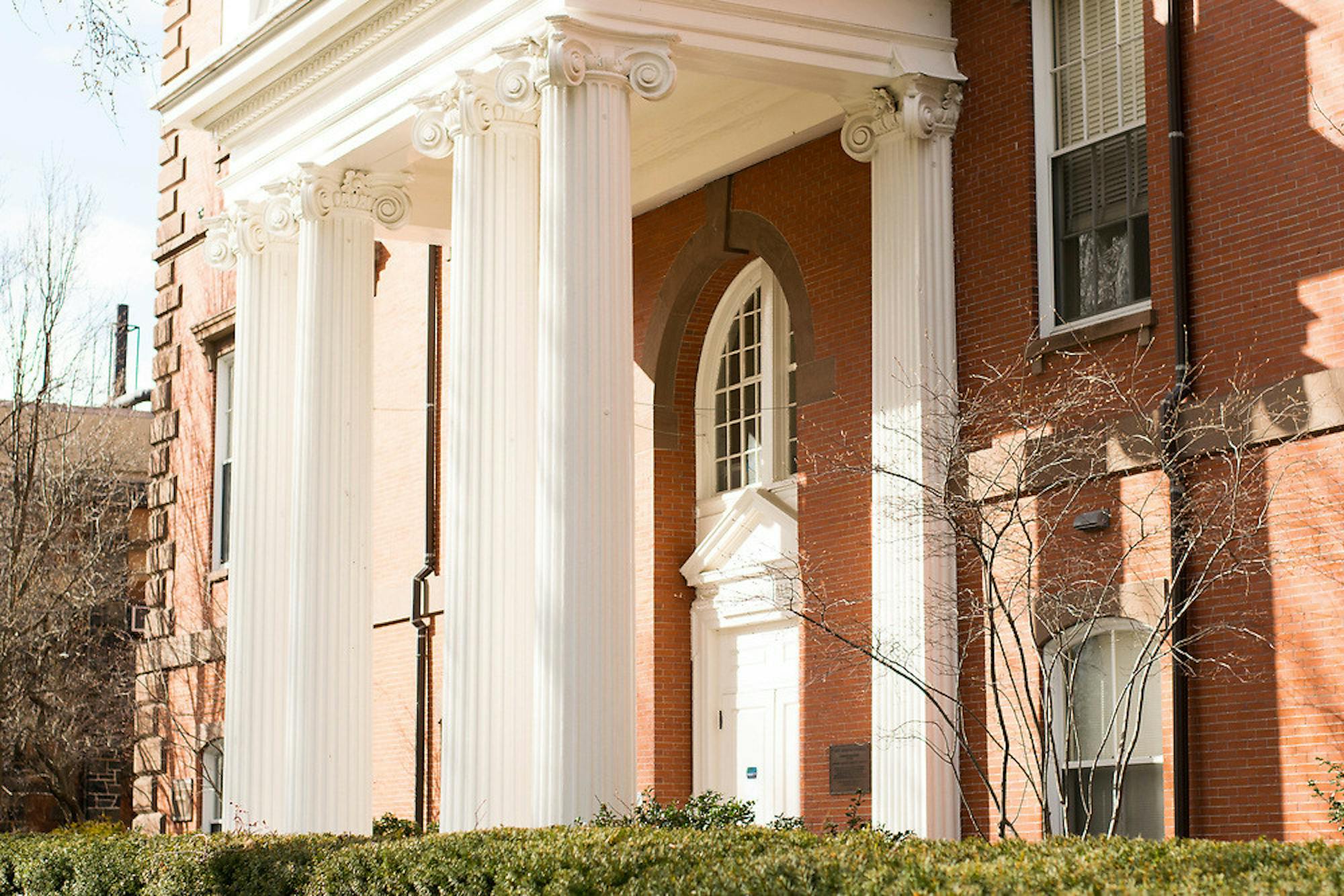The Board of Trustees held their last meeting of the 2018–19 academic year during Commencement weekend in May. The Trustees heard presentations from the university administration on the institution’s financial outlook and its efforts to promote diversity, according to a June 25 message from University President Anthony Monaco.
In a statement provided to the Daily by Executive Director of Public Relations Patrick Collins, Peter R. Dolan (A’78), the chair of the Board of Trustees, expressed confidence about the state of Tufts’ finances. Dolan pointed to Tufts’ rating by the global credit scoring company Moody's as evidence of its healthy financial state.
“The university has had a long history of effective financial management, as evidenced by our strong Moody’s rating, which is affirmed annually,” Dolan said.
According to Moody’s website, Tufts maintains a healthy Aa2 credit rating, the third highest rating available, on its $34 million 2018 bond issue and $719 million debt.
“We’ve been vigilant about managing our finances responsibly, and we’re confident in our direction,” Dolan said.
Tufts’ Treasurer and Vice President for Finance Thomas McGurty told the Daily in a statement that revenue increased 4.5% in the last fiscal year ending in June 2019, giving the university around $2.4 billion in revenue, according to its latest tax filings.
McGurty said that enrollment goals, which the Daily reported in February are about 100 more students per academic year until 2020–21, are also being met, improving cash flow in the university while also hitting its targets for investment returns and the current capital campaign, Brighter World.
This is a far cry from a decade ago, when the university, reeling from the dual blows of the 2008 recession and its losses in the Bernie Madoff Ponzi scheme, faced $36 million in budget cuts.
Nonetheless, the university still has to navigate difficult financial seas ahead.
McGurty said that trends in higher education, such as the declining number of high school graduates, low retention of faculty and staff and high healthcare costs consistently outstripping inflation, are negatively impacting finances. Monacoexpressed similar concerns in his report on the meeting.
In terms of enrollment, McGurty pointed to the more than 22,000 applications that Tufts received for the Class of 2023 and said that Tufts is operating within its financial aid budget in contrast to other liberal arts schools which have had to attract students with steep tuition markdowns.
The new collective bargaining agreement signed with UNITE HERE Local 26, which represents the dining workers, included new provisions which will increase healthcare costs for the university.Dean of the School of Arts and Sciences Jim Glaser even cited the agreement when justifying the tuition rise last spring.
However, McGurty again asserted that Tufts is managing the impact.
Still, the university’s operating surplus remains around 1% of the total budget, which, according to McGurty, ideally would be around 3%. McGurty said this threshold would provide Tufts with a buffer to deal with market shocks like a recession and reinvest in long-term projects.
In his report on the meeting, Monaco gave what may lie at the root of the university’s problem with financial margins: Costs are rising faster than revenue for most of Tufts’ constituent schools.
Nonetheless, McGurty is confident the university will be able to turn that around too. Key to the administration’s response is the newly-created University College, which will offer courses and programs to non-traditional students.
“An important part of our vision and mission at Tufts is making education accessible, and these efforts — in addition to generating revenue — will make courses at Tufts more accessible to more people, such as a mid-career professional or a high school student interested in a summer course,” McGurty said.
Also important to the university’s financial strategy going forward is the Joyce Cummings Center, currently under construction near the intersection of Boston Avenue and College Avenue, McGurty explained.
McGurty said that the building’s location adjacent to the new Green Line stop will make it ideal for working adults and non-traditional students who commute, allowing The Fletcher School of Law and Diplomacy to expand its executive education programs and facilitate large revenue-generating conferences.
The other primary focus of the Board’s May meeting was a presentation by Joyce Sackey, associate provost and chief diversity officer for the health sciences schools, on the university’s efforts to increase diversity.
According to Sackey, each school will now name a new associate dean for diversity and inclusion. All the diversity deans will then form a cabinet co-chaired by Sackey and Rob Mack, associate provost and chief diversity officer for Medford/Somerville and the School of the Museum of Fine Arts at Tufts, which will coordinate their approaches university.
Sackey explained that this new structure sprang from the results of a diversity and inclusion audit conducted during the last academic year, which highlighted the need for greater coordination across all campuses.
The Board’s 11 committees also met this past May, with a non-voting student trustee representative, Connor Goggins, attending the open-session portion of the Administration and Finance Committee. Goggins, a junior, said that his committee focused on the Cummings Center’s construction progress and the fate of fraternity houses recently purchased by the university.
The Trustees also marked the departures of several high-ranking women in the Tufts administration that were previously announced, including former Executive Vice President Patricia Campbell, former Dean of Admissions and Enrollment Management Karen Richardson, former Dean of Student Affairs Mary Pat McMahon, former Senior Vice President and Provost ad interim Deborah Kochevar and former Vice Provost for Research Simin Meydani.
At June Trustee meeting, administration optimistic about finances, diversity

Ballou Hall is pictured on April 20, 2018.





